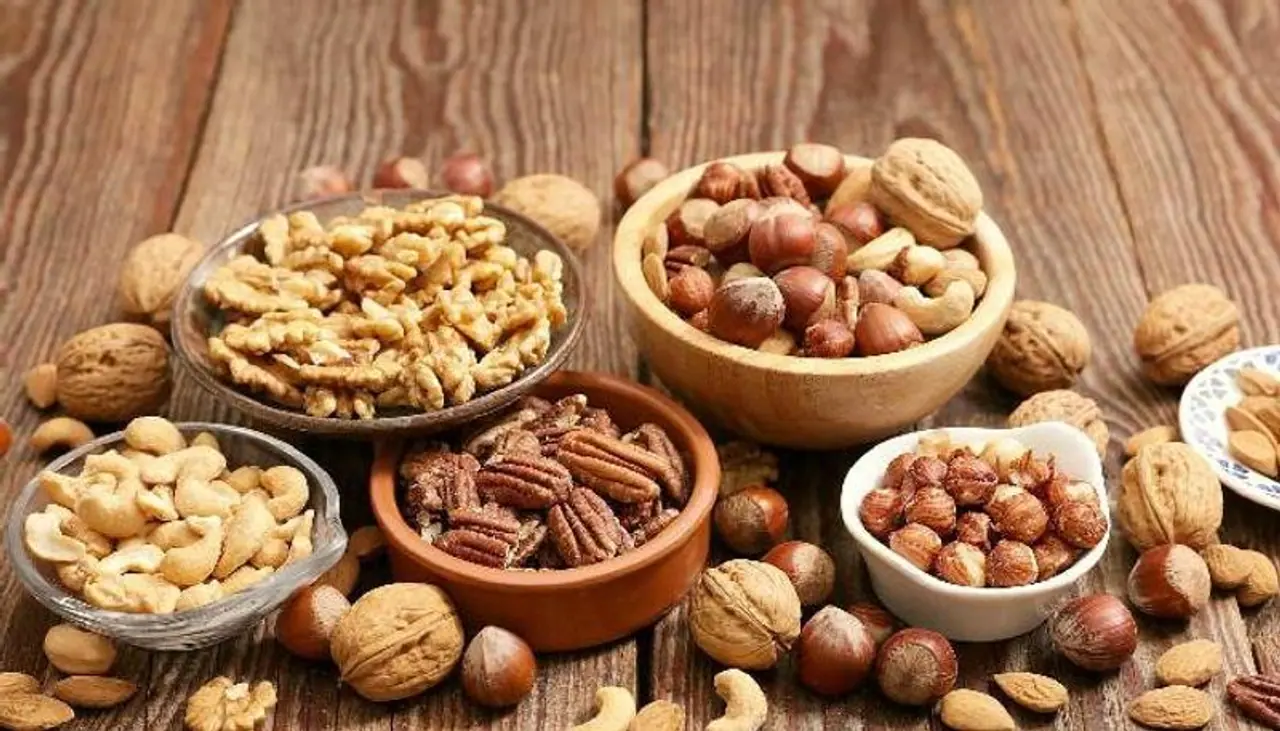Nuts to dark chocolate: 5 food items that are good for your heart
The very least you can do is include heart-healthy foods in your diet and check your cholesterol levels regularly. Here are five foods that will be highly good to your heart.

Nuts
Nuts, which are strong in fibre, protein, and certain fats, are perfect if you avoid processed snacks or junk food, which are heavy in harmful refined carbs. Nuts and seeds are recognised to offer several health advantages, the most important of which is improved heart health. They are widely accessible in supermarkets and local markets. According to a recent study published in the British Medical Journal, consuming several servings of nuts each week can help lower the chance of developing cardiac rhythm irregularities.

Fruits & vegetables
Fruits are an excellent mid-meal snack or post-meal sweet since they are low in fat and abundant in potassium, magnesium, fibre, and antioxidants. Fruits should be eaten raw or juiced as much as possible.
Vegetables include fibre, which is the essential nutrient for heart health. Furthermore, most vegetables have a high concentration of antioxidants, which assist in protecting the heart and arteries from free radical damage.
Also Read | World Heart Day: Are you diabetic? Here's how you can lower risk of heart disease
Dark Chocolate
Several studies have found that dark chocolate may assist to lower the risk of heart disease. Dark chocolate is high in flavonoids, which can aid improve heart health.
Mixed Grains
Whole grains such as wheat, oats, barley, brown rice, and quinoa are examples of grains that may be included in one's diet. According to a study published in the British Medical Association, consuming 28 grammes of whole grains daily may reduce your risk of heart disease by 22%. Many researchers have also found that refined whole grain consumption should be reduced.
Also Read | From improving eyesight to treating acne: Benefits of fennel seeds (saunf) you didn’t know
Fatty Fish
Inflammation frequently leads to significant heart disease; thus, fatty fish such as salmon, tuna, and trout should be consumed. Fish high in omega-3 fatty acids aid in the prevention of inflammation. If you don't want to eat fish, you can acquire omega-3 fatty acids from vegetables. Flax seeds are one of the finest sources of omega-3 fat. According to the Journal of Nutrition, eating salmon three times a week for eight weeks reduces diastolic blood pressure in many persons.